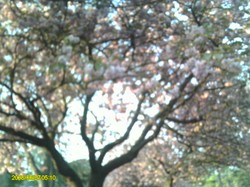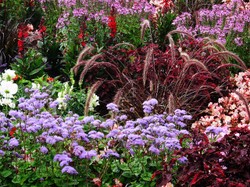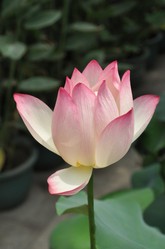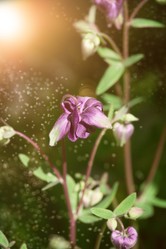Few people in the United Kingdom now live in woodlands, but Ben Law managed to do it, living and working the land despite opposition from the authorities, who favour conventional living arrangements, "Little boxes all the same" as the old song goes. Law not only took up an ancient trade of woodsman, but took on the authorities and built his own woodland house, along with the aid of many volunteers. In this book he talks of his experiences, his woodlore and his view for the future.

Woodsman: a review
by frankbeswick
This book telling the story of Ben Law's life as a woodsman, dwelling and working in Prickly Nut Wood, is informative and interesting.
Woodsman
The book begins with Ben's story, as he moves from a general interest and expertise in Permaculture to taking up a specific project in Prickly Nut Wood, a patch of underused, neglected coppice on the Greensand Hills overlooking the Kent Weald,several miles south of London. Despite his proximity to the bustling capital, he seems little disturbed by London, its inhabitants or its issues, and we feel that we are being transported back into an older English way of living. Perched near the top of a hill, looking down an escarpment, Law found the place that he felt was home, and settled, living in a bender, a basic hazel and canvas structure, until he took up a yurt. Having moved to a leaky caravan, he eventually caught the eye of the planning authorities, who gave him an order to go. However, on appeal, he gained permission to dwell in the wood, as he needed to be there for his work; and there he stays. There are conditions: he must remain a woodsman/charcoal burner.
Ben's woodland house has caught the national consciousness, especially among those of green disposition. He managed to design and build it in the wood,using the services of many volunteers, often young people, but not always. He was helped by the fact that he had a useful connection, the celebrity chef Hugh Fearnley Whittingstall, who got him in contact with television executives, and this shows that no one succeeds alone in this world. Connections are vital.
Woodsman
 | Woodsman Ben Law’s incredible sense of the land and his respect for age old traditions offers a wonderful insight into the life of Prickly Nut Wood.Having travelled to Papua New Guinea a... |
A Book of Woodland Lore
One of the great strengths of this book is the writer's great knowledge of woodlands, trees and their uses. We might think of Law as the last of an ancient line, men skilled in the lore of woodlands, but Law sees himself as promoting wood as the material of choice in the post-oil age that is looming upon us. That he has moved from being a sole trader, a self-employed person working alone, to the head of a company that produces wooden houses shows the degree to which this competent and pragmatically skilled man has progressed, and the degree to which his vision is being justified. He promotes himself as the future, and he is almost certainly correct.
Ben, along with several others, each in their own woodland, has resurrected the ancient skill fo charcoal burning and linked it up to the newer skill of producing biochar, a wonderful alternative to charcoal which constitutes a great soil enhancer and locks up carbon indefinitely. Moreover, he has worked to develop the traditional skill of coppicing.This involves cutting trees to stumps and then waiting for the resultant regrowth, which is then harvested The technique of coppicing involves a planned cycle of cutting that went on the mediaevall period, but which has its roots in the stone age. Ben has harvested and re-coppiced many acres of ancient woodland and sold the proceeds as broom handles and firewood etc.
Law's knowledge of wood and the uses of each species is masterly. He talks not only of the nutritional value of a tree, such as sweet chestnut, but also of the qualities of its wood. Birch burns brightly, but makes great wine; oak hosts many insect species. We are told that sweet chestnut,a Roman import in the first few centuries, is a fine wood; and there are several foreign species, such as black locust, which would make good timber. This is but a sample of Ben's woodland lore, which he has salvaged from an earlier and more natural England.
Conclusion
Ben has the skill of writing without waffling, and there is no redundant language in the text. The book is written with no waste of words, in a simple and compelling style which makes for easy comprehension. If like me you want to absorb the information in a book, you will need to spend some time reflecting on the details that Ben gives you, and you will be wiser about green matters than you previously were. But even if you read this book lightly, skimming the text, as it were, you will have pleasure in the reading.
I find his vision of the future of his village idealistic, but compelling. I hope that the future is as gently green as he describes it; and the revival of ancient skills that he advocates is surely necessary, as oil declines and the false materialistic lifestyle that society has lived fades. But I fear that his gentle soul might be deluded in its expectations, even as it identifies, specifies and prescribes the right solutions.
You might also like
British Country ShowsBritain has a rich assortment of country shows, be they flower shows, agricul...
The Health Benefits of GardeningGardeners do not live for ever, Adam and Eve didn't, but they tend to be hea...
The Healing WoodHerbalists Anne Stobart and Kay Foster have created a healing forest garden.








 Pilgrimage. A review15 days ago
Pilgrimage. A review15 days ago
 Leo the Fourteenthon 05/09/2025
Leo the Fourteenthon 05/09/2025
 The Melsonby Hoardon 03/25/2025
The Melsonby Hoardon 03/25/2025




Comments
In Britain anyone can make wine for personal consumption, but you are not allowed to sell it. You cannot distill your own spirits from your wine.
Thank you!
The birch-tree wine in "well-forested" -- ;-D -- Scotland sounds appetizing.
Is it possible to make one's own birch-tree wine from one's own birch trees on one's own property without paperwork or certifying-agency standards?
I had it in Scotland, which is welL forested.,but it is not common.
Thank you for your comment March 8, 2023, in answer to my previous, same-day question.
It's interesting that you mention grape juice combined and fermented with birch-tree sap.
Is birch wine something readily purchasable anywhere in the British Isles?
Or might it be regional in its appeal and availability?
As farvas I know birch of various species is a gòd firewood, but also the sap of buriches in general makes gòd wine, though it is not as tasty as maple syrup. I suspect that birch wine is often made by combinimng and fermenting birch sap with grape juice, but I am uncertain on this.
The last paragraph to your second subheading, A Book of Woodland Lore, contains the observation that "Birch burns brightly, but makes great wine."
Would that be true of all or some birches?
Perhaps the value of books such as "Woodsman" lies in the perpetuation of alternatives which may not dominate the immediate future but which manage to survive. Coppicing is as much a rewarding skill as pollarding, and it's inspirational that it's part of the author's repertoire. The practice of coppicing handed down from generation to generation -- along with a tendency to let glass-makers non-clear-cut woods prefatory to the subsequent establishment of a village and its farmlands -- is one of the many reasons why the Czech Republic historically has such beautiful forests and woodlands. Thank you for sharing forest- and tree-related learning!
This looks amazing, to live amidst woods is a dream many cherish, surviving without the comforts of modern life is challenging. Hope Ben lives without wasting the precious green cover and the forests, they need to be conserved.
:) Thank you, Frank, for your response!
He earns money by selling wood products, and his business has developed to designing wooden houses, so he prospers.
But he has eaten several natural products. Sweet chestnut thrives in Prickly Nut Wood [its prickly nuts gave the wood its name.] Cob nuts, a kind of walnut, are common in Kent, where he lives. He has made birch wine. Muntjac, a type of small deer, are spreading through British woodlands, and make good venison, and he makes hawthorn and rowan jelly to add seasoning to it. Sometimes wood pigeons can be shot and they make good eating. Wild garlic is found in British woodlands. Blackberries are also found wild in Britain, and many Britons eat them.